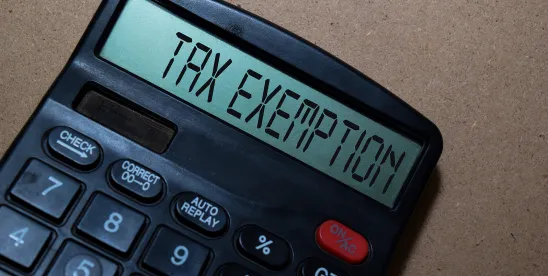In a potentially landmark shift announced July 7, 2025, the Internal Revenue Service (IRS) publicly acknowledged in a federal court filing that houses of worship may speak with their congregations about political candidates and elections without risking their tax-exempt status. This statement marks the first time that the IRS has clearly acknowledged such a position, despite nearly 75 years of precedent for prohibiting similar activity due to the “Johnson Amendment.”
Enacted in 1954 after being proposed by then-Senator Lyndon B. Johnson, the Johnson Amendment to the Internal Revenue Code (IRC) prohibits all organizations exempt from taxation pursuant to IRC 501(c)(3) from “participat[ing] in, or interven[ing] in (including publishing or distributing of statements), any political campaign on behalf of (or in opposition to) any candidate for public office.” Historically, this has been understood to mean that religious leaders could not explicitly endorse or oppose political candidates from the pulpit or through official church channels, and that statements by religious leaders to a congregation in support or opposition to a particular candidate’s election could put the organization’s tax status at risk.
The shift in IRS policy was revealed as part of a proposed settlement agreement in a case between the IRS and a Christian broadcasting association (National Religious Broadcasters), a Christian ministry organization (Intercessors for America), and two churches (Sand Springs Church and First Baptist Church Waskom). These religious group plaintiffs sued the IRS nearly a year prior, asserting that by preventing them from endorsing political candidates, the Johnson Amendment, on its face and as enforced, infringed upon “their First Amendment rights to the freedom of speech and free exercise of religion, their Fifth Amendment rights to due process of law and equal protection under the law, and the Religious Freedom Restoration Act.”
As outlined in the proposed settlement, the IRS has now stated that it does not interpret the Johnson Amendment to prevent “a house of worship in good faith [from] speak[ing] to its congregation, through its customary channels of communication of matters of faith in connection with religious services, concerning electoral politics viewed through the lens of religious faith;” such activity will not be considered to be “participat[ing]” or “intereven[ing]” in a “political campaign” in violation of the 501(c)(3) restriction. Thus, statements regarding the “character or qualifications” of a political candidate or direct or indirect comments that may be understood as endorsements made as part of religious services—provided they are tied to “good faith” religious beliefs—would not trigger IRS enforcement or jeopardize the entity’s 501(c)(3) status.
The IRS emphasized that this position is “consistent with a long-standing pattern of selective enforcement,” and referenced a 2017 executive order issued by then-President Trump directing the IRS not to pursue penalties against religious organizations engaged in political speech.
The full effect of this announcement is not yet clear. The proposed settlement is technically binding only on the IRS with respect to the plaintiff organizations. However, because the agency has now made its interpretation public and referenced general policy, the practical impact may extend to many other houses of worship, and IRS enforcement in this area is unlikely. Churches and other houses of worship should also note the scope of the exception is limited to “customary channels of communication…in connection with religious services” and should not read the announcement to permit political endorsements in all contexts.
Importantly, the IRS’ interpretation does not extend to all nonprofit 501(c)(3) organizations, such as secular charities, educational groups, and advocacy organizations, which remain subject to the full restrictions of the Johnson Amendment.
For now, the practical result is that churches and other houses of worship appear to have a right in connection with religious services to speak freely to members of their congregations about political candidates without losing tax-exempt status, provided that such communications are related to religious faith. The limits of this right, however, may not be clear. Consequently, houses of worship looking to interact more closely with political candidates and committees should proceed thoughtfully and consider consulting with legal counsel.





 />i
/>i
